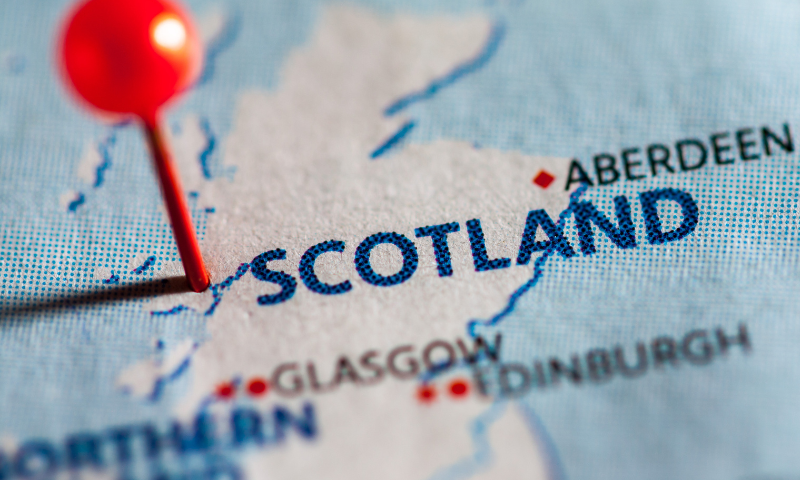Scotland’s “Target 2030: A movement for people, planet and prosperity”, has this month been revealed, detailing a vision which would see “every 3-18 place of education become a Sustainable Learning Setting by 2030”.
Considering the close ties between education, environment and healthcare and the impact they can have on wellbeing – on an individual and population basis – here we will take a look at Scotland’s plans for sustainability in education going forward.
The backdrop to the new plan
The government’s desire to “enhance the role of Scotland as a global citizen” has driven the push for net zero, which has taken centre stage in national strategies and policies. According to the Target 2030 plan, LfS is the common strand which knits many of these themes together and maintains the focus on solidifying Scotland’s position as a forward-thinking global citizen.
The government calls LfS “the way that our curriculum connects to the wider world” and adds: “It teaches future generations to value thoughtful and responsible behaviour, helping them to develop political literacy and equipping learners with the knowledge, skills and confidence to detect bias, make informed choices about the complex world around them and develop as global citizens.”
Actions
The plan set out a series of actions, to be undertaken at individual, organisational and whole-government level, in order to achieve Target 2030’s vision. These fall under five themes: leadership and collaborative partnership; curriculum, learning, teaching and assessment; learning environment and resources; learner voice, choice and action; and meaning and understanding.
We outline some of the most important actions to be taken under each of these themes below.
Leadership and collaborative partnership
Here, the document shares how the government is issuing a call to action which will invite all organisations to integrate the 2030 commitment into their strategic plans and activities.
A review will be undertaken of national funding streams relating to LfS, to identify areas for improvement in resource allocation; LfS will also feature in national plans, standards and programmes, and work will be undertaken with partner and third sector organisations to encourage support for the vision.
Curriculum, learning, teaching and assessment
Actions under this theme include the development of new LfS-related qualifications; and better collaboration on LfS at national, local, regional and local cluster level, across Scottish Government, Education Scotland and relevant national agencies.
Another action is to strengthen LfS networks across Education Scotland, taking into account members from national policy and agency roles; local and regional strategic and improvement roles; education leaders and practitioners; children and young people; and partner organisations and stakeholders
Learning environment and resources
Here, the document states how the government will work to identify barriers and solutions to the Target 2030 vision, sharing good practice examples of whole-setting approaches and sharing where support can be found.
A LfS-compliant learning estate will be established, working with key partners to “encourage the use of the Place Standard as a curriculum tool, as a key part of community planning and spatial planning processes and as a means to inform the design brief for learning settings”
Provisions will be outlined for outdoor learning, ensuring children receive entitlements to outdoor learning, and working with NatureScot to promote and pilot the use of the Nature Discovery Map and other resources. Ultimately, this intends to link “education settings to nature networks and growing the use of local green space”
Learner voice, choice and action
Actions under this theme include convening national LfS Children and Young People Leadership Groups, which will codesign “key deliverables” including the LfS online portal and key LfS indicators, and creating peer LfS networks for children and young people, to support them to connect better with one another.
Strategies will seek to increase the visibility of new and existing LfS qualifications and pathways, including providing information on how these can lead to green jobs resulting from the transition to net zero
Meaning and understanding
In this area the Scottish government will be developing a new LfS Portal to provide an accessible way to share understanding, practice examples, learning and resources. They will improve engagement with the teaching profession to ensure that LfS is embedded in teaching practice, and work with the Scottish Social Services Council to embed LfS within all early learning, childcare and community learning pathways.
The plan finishes with a commitment to continue to take into account the voices of learners, educators and senior leaders.
The government concludes that they “seek to remain responsive to further change” and notes that there are major reforms underway in school education which will continue to evolve and develop. “But we have yet to see the final shape and content of those reforms,” the government acknowledges. “The plan itself and the implementation activity which stems from the plan will therefore be taken forward in a flexible, responsive and iterative way.”
To read the plan in full, please click here.



